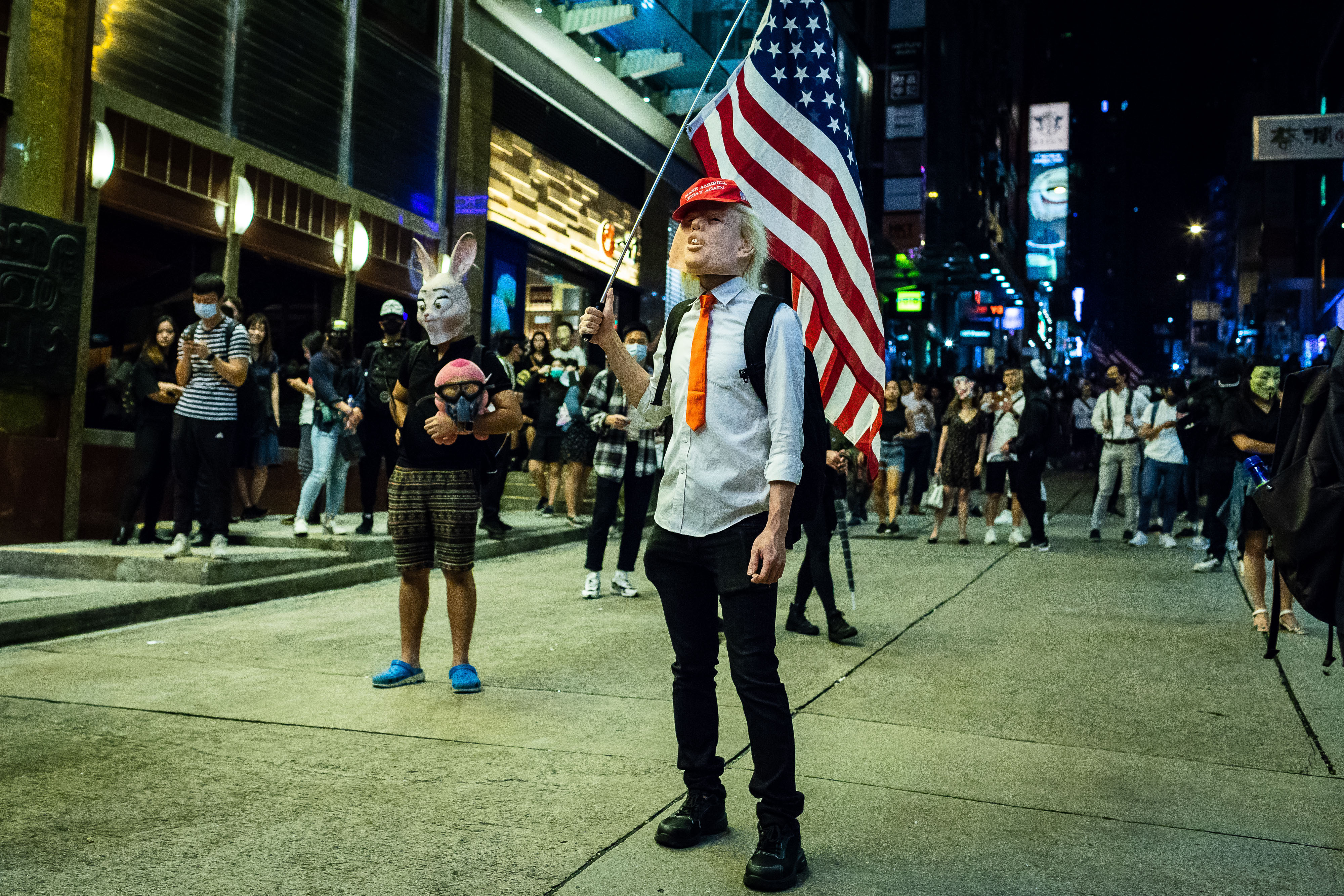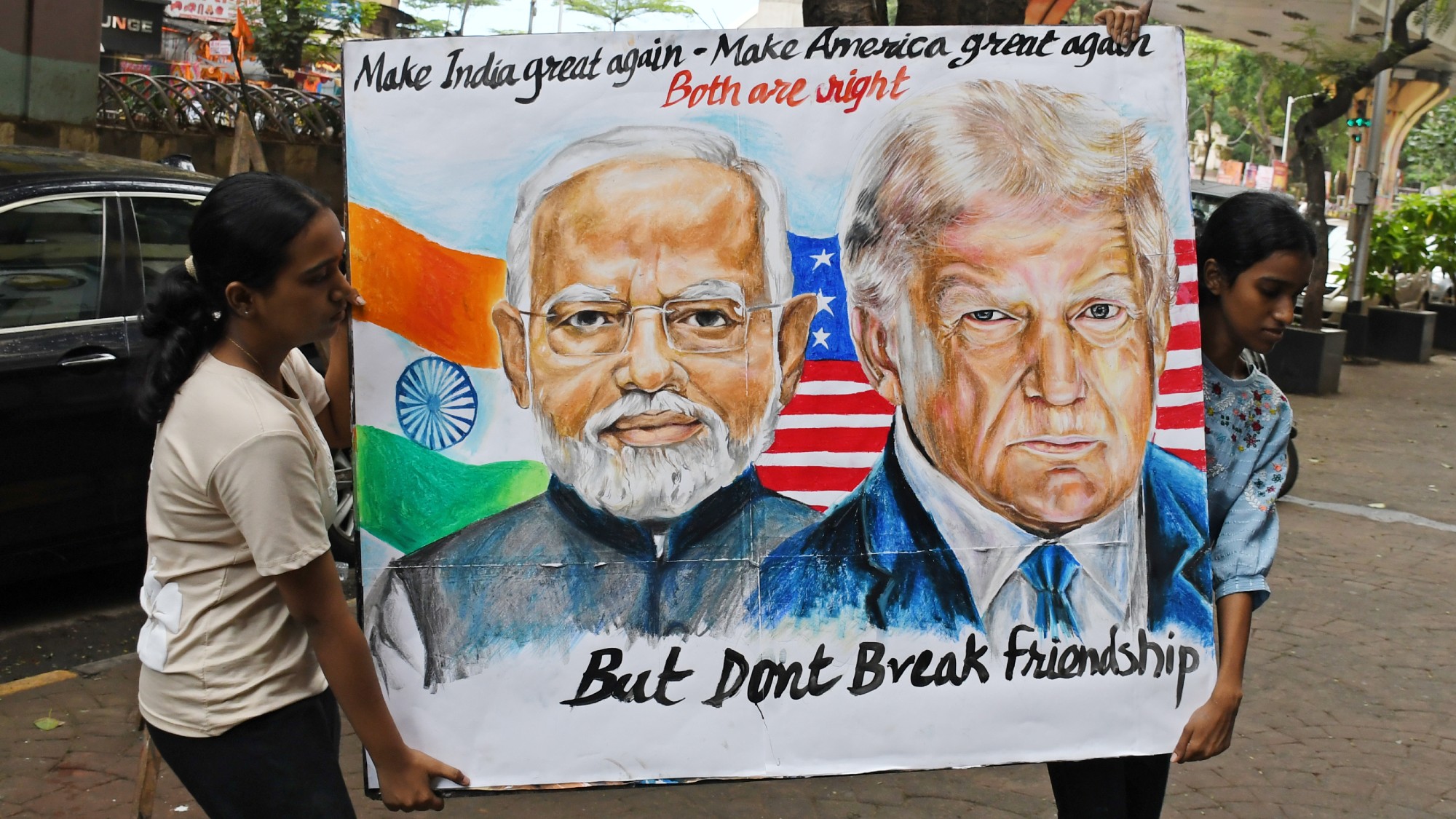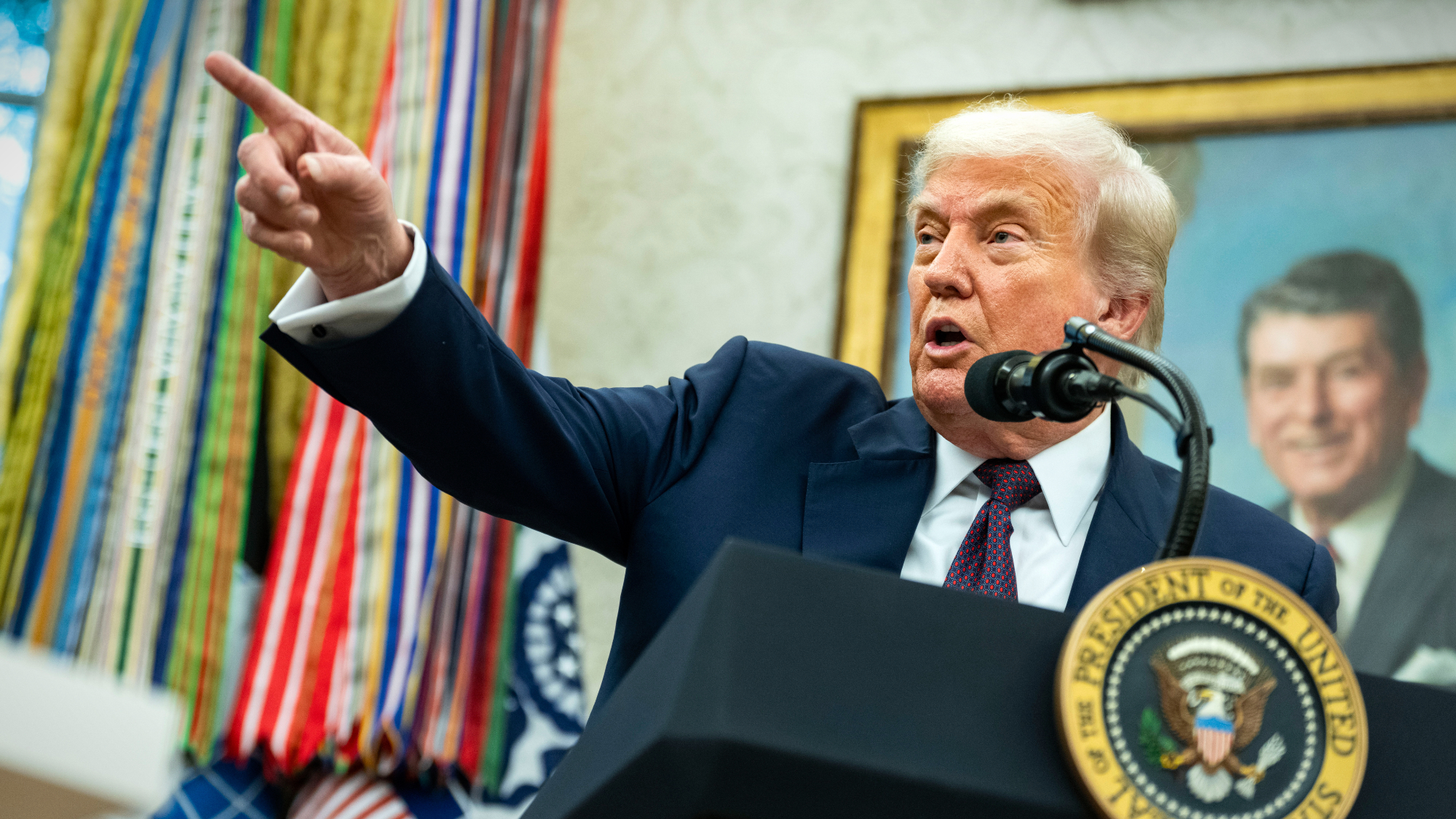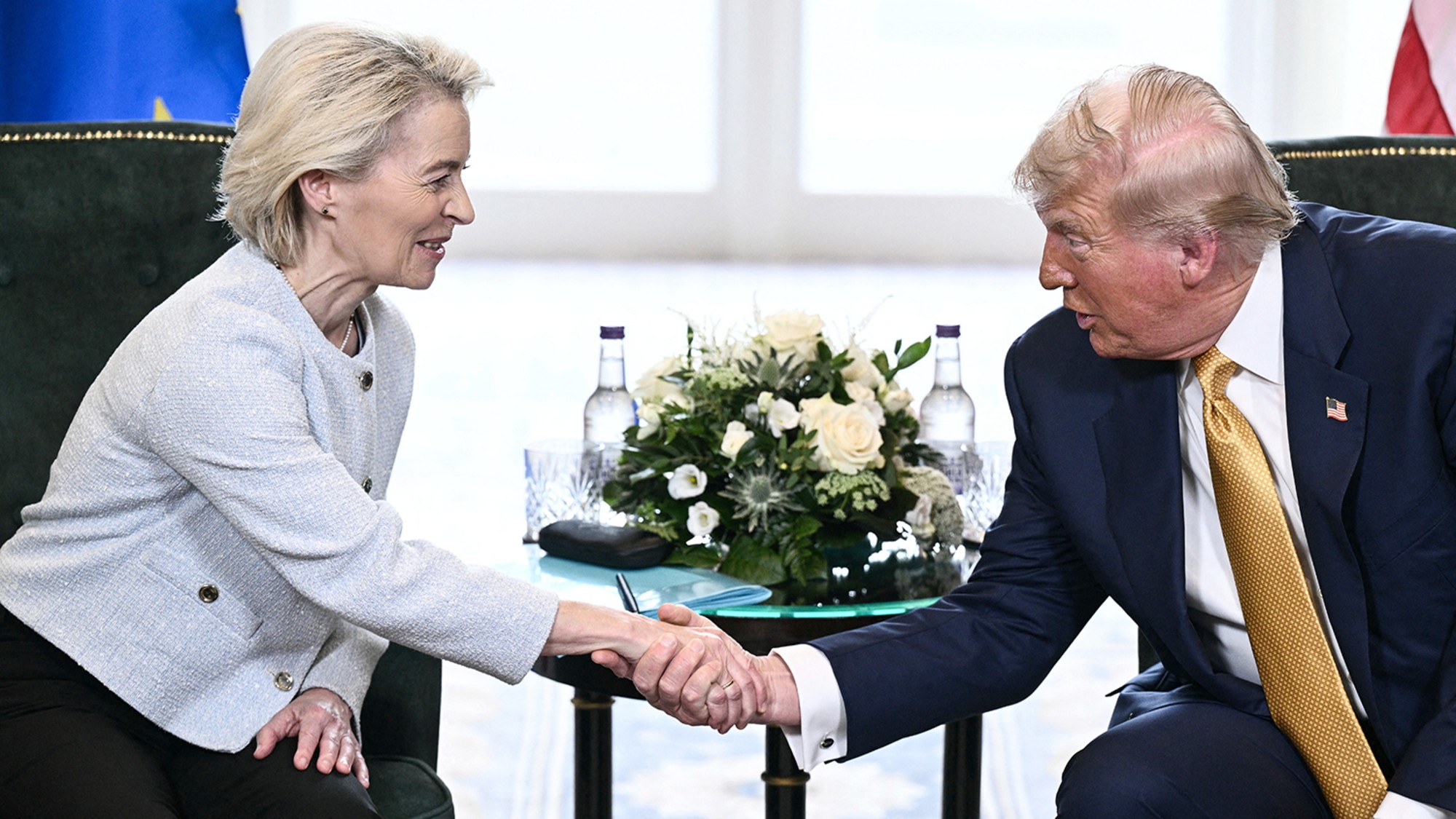China and US on ‘edge of precipice’ over Hong Kong rights bill
Pro-democracy bill yet to be signed by Donald Trump, but is already provoking Beijing and imperilling sensitive trade negotiations


A free daily email with the biggest news stories of the day – and the best features from TheWeek.com
You are now subscribed
Your newsletter sign-up was successful
A bill that would signal emphatic American support for the pro-democracy protests currently engulfing Hong Kong arrived on President Donald Trump’s desk yesterday, amid increasingly forceful objections from Beijing.
Approved overwhelmingly by both houses of the United States Congress, the Hong Kong Human Rights and Democracy Act compels Washington to impose sanctions on individual Chinese and Hong Kong officials who are deemed responsible for human rights abuses in the territory.
It also requires the State Department to perform an annual review of the semi-autonomous territory’s legal and political independence. If they conclude it is being compromised by Beijing, then Hong Kong’s special trading status - a huge boon to the city’s economy - would be revoked.
The Week
Escape your echo chamber. Get the facts behind the news, plus analysis from multiple perspectives.

Sign up for The Week's Free Newsletters
From our morning news briefing to a weekly Good News Newsletter, get the best of The Week delivered directly to your inbox.
From our morning news briefing to a weekly Good News Newsletter, get the best of The Week delivered directly to your inbox.
Speaking after the bill was passed in the House with a vote of 417-1 on Wednesday, House Speaker Nancy Pelosi said it was “a day of mutual respect for democratic freedoms, the courage of the young people there to speak out, and also [a] day of great bipartisanship in the House of Representative and the United States Senate.”
She argued that Beijing had broken its promise to respect a degree of autonomy for Hong Kong in the “one country, two systems” agreement in place since 1997. “America has been watching for years as the people of Hong Kong have been increasingly denied their full autonomy and faced with a cruel crackdown on their freedoms and an escalation of violence.”
However, as Trump determines whether or not to sign the bill, the Chinese Communist party began to bridle at the prospect of it becoming US law. America, said the CCP’s official newspaper, the People’s Daily, should “rein in the horse at the edge of the precipice.”
In a statement released by China’s Ministry of Foreign Affairs on Thursday, spokesperson Geng Shuang said “China will have to take strong countermeasures to defend our national sovereignty, security and development interests if the US insists on making the wrong decisions.”
A free daily email with the biggest news stories of the day – and the best features from TheWeek.com
It remains to be seen whose side the US president comes down on. He has 10 days to sign the bill, but if he fails to do so, he will face an uproar in Washington, even from his own party. Currently mired in the ongoing impeachment scandal, it is unlikely Trump will risk irking his domestic defenders. However, if the Chinese threats are to be taken seriously, signing the bill could risk US-China trade talks that have become a pillar of his presidency and its legacy.
“The legislation will further fuel the narrative in Chinese domestic policy circles that the US is attempting to infringe on the sovereignty of China in terms of its internal economic and political affairs,” said Eswar Prasad, former head of the International Monetary Fund’s China division.
“My understanding is that they will sign it,” Florida senator Marco Rubio told CNBC yesterday.
–––––––––––––––––––––––––––––––For more political analysis - and a concise, refreshing and balanced take on the week’s news agenda - try The Week magazine. Get your first six issues free–––––––––––––––––––––––––––––––
Mid-November saw that violence in Hong Kong reach new levels. Last weekend police stormed university campuses that had been converted into makeshift fortresses, arresting roughly 1,000 people. Still, the city remains unbowed, and a few dozen people were still holding out inside the Polytechnic University on Thursday, and The Washington Post reports a scene of over 100 protesters in an upscale shopping mall chanting “Sign the bill, protect Hong Kong!”
A public opinion poll last week revealed a strong level of support in Hong Kong for the bill, with over half of residents strongly supporting it.
Nevertheless, if Trump signs the bill, US relations with China will be compromised at a time when the entire global economy is suffering because of their trade war. If a “phase one” agreement cannot be reached, a new raft of US sanctions goes into effect on December 15.
“Beijing sees such measures as striking at the heart of Chinese sovereignty. Radical protesters could be spurred to greater violence. Unspecified countermeasures are promised should Trump give his approval,” says the South China Morning Post. “With the trade war talks at a sensitive juncture, the terms of a 'phase one' agreement and time and place for its signing still uncertain… there can be no winners.”
William Gritten is a London-born, New York-based strategist and writer focusing on politics and international affairs.
-
 6 exquisite homes with vast acreage
6 exquisite homes with vast acreageFeature Featuring an off-the-grid contemporary home in New Mexico and lakefront farmhouse in Massachusetts
-
 Film reviews: ‘Wuthering Heights,’ ‘Good Luck, Have Fun, Don’t Die,’ and ‘Sirat’
Film reviews: ‘Wuthering Heights,’ ‘Good Luck, Have Fun, Don’t Die,’ and ‘Sirat’Feature An inconvenient love torments a would-be couple, a gonzo time traveler seeks to save humanity from AI, and a father’s desperate search goes deeply sideways
-
 Political cartoons for February 16
Political cartoons for February 16Cartoons Monday’s political cartoons include President's Day, a valentine from the Epstein files, and more
-
 How corrupt is the UK?
How corrupt is the UK?The Explainer Decline in standards ‘risks becoming a defining feature of our political culture’ as Britain falls to lowest ever score on global index
-
 The high street: Britain’s next political battleground?
The high street: Britain’s next political battleground?In the Spotlight Mass closure of shops and influx of organised crime are fuelling voter anger, and offer an opening for Reform UK
-
 Is a Reform-Tory pact becoming more likely?
Is a Reform-Tory pact becoming more likely?Today’s Big Question Nigel Farage’s party is ahead in the polls but still falls well short of a Commons majority, while Conservatives are still losing MPs to Reform
-
 Taking the low road: why the SNP is still standing strong
Taking the low road: why the SNP is still standing strongTalking Point Party is on track for a fifth consecutive victory in May’s Holyrood election, despite controversies and plummeting support
-
 Trump and Modi: the end of a beautiful friendship?
Trump and Modi: the end of a beautiful friendship?In the Spotlight Harsh US tariffs designed to wrest concessions from Delhi have been condemned as 'a new form of imperialism'
-
 Trump's global tariffs take effect, with new additions
Trump's global tariffs take effect, with new additionsSpeed Read Tariffs on more than 90 US trading partners went into effect, escalating the global trade war
-
 Tariffs: Is Trump winning his trade war?
Tariffs: Is Trump winning his trade war?Feature Trump secures a new trade deal as Europe agrees to 15% tariffs
-
 What difference will the 'historic' UK-Germany treaty make?
What difference will the 'historic' UK-Germany treaty make?Today's Big Question Europe's two biggest economies sign first treaty since WWII, underscoring 'triangle alliance' with France amid growing Russian threat and US distance
